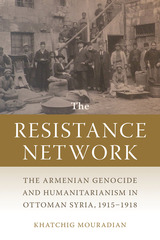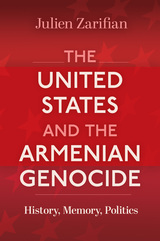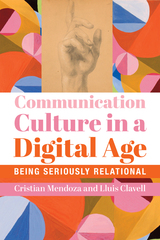3 books about Armenian Genocide

The Resistance Network
The Armenian Genocide and Humanitarianism in Ottoman Syria, 1915–1918
Khatchig Mouradian
Michigan State University Press, 2021
The Resistance Network is the history of an underground network of humanitarians, missionaries, and diplomats in Ottoman Syria who helped save the lives of thousands during the Armenian Genocide. Khatchig Mouradian challenges depictions of Armenians as passive victims of violence and subjects of humanitarianism, demonstrating the key role they played in organizing a humanitarian resistance against the destruction of their people. Piecing together hundreds of accounts, official documents, and missionary records, Mouradian presents a social history of genocide and resistance in wartime Aleppo and a network of transit and concentration camps stretching from Bab to Ras ul-Ain and Der Zor. He ultimately argues that, despite the violent and systematic mechanisms of control and destruction in the cities, concentration camps, and massacre sites in this region, the genocide of the Armenians did not progress unhindered—unarmed resistance proved an important factor in saving countless lives.
[more]

The United States and the Armenian Genocide
History, Memory, Politics
Julien Zarifian
Rutgers University Press, 2024
During the first World War, over a million Armenians were killed as Ottoman Turks embarked on a bloody campaign of ethnic cleansing. Scholars have long described these massacres as genocide, one of Hitler’s prime inspirations for the Holocaust, yet the United States did not officially recognize the Armenian Genocide until 2021.
This is the first book to examine how and why the United States refused to acknowledge the Armenian Genocide until the early 2020s. Although the American government expressed sympathy towards the plight of the Armenians in the 1910s and 1920s, historian Julien Zarifian explores how, from the 1960s, a set of geopolitical and institutional factors soon led the United States to adopt a policy of genocide non-recognition which it would cling to for over fifty years, through Republican and Democratic administrations alike. He describes the forces on each side of this issue: activists from the US Armenian diaspora and their allies, challenging Cold War statesmen worried about alienating NATO ally Turkey and dealing with a widespread American reluctance to directly confront the horrors of the past. Drawing from congressional records, rare newspapers, and interviews with lobbyists and decision-makers, he reveals how genocide recognition became such a complex, politically sensitive issue.
This is the first book to examine how and why the United States refused to acknowledge the Armenian Genocide until the early 2020s. Although the American government expressed sympathy towards the plight of the Armenians in the 1910s and 1920s, historian Julien Zarifian explores how, from the 1960s, a set of geopolitical and institutional factors soon led the United States to adopt a policy of genocide non-recognition which it would cling to for over fifty years, through Republican and Democratic administrations alike. He describes the forces on each side of this issue: activists from the US Armenian diaspora and their allies, challenging Cold War statesmen worried about alienating NATO ally Turkey and dealing with a widespread American reluctance to directly confront the horrors of the past. Drawing from congressional records, rare newspapers, and interviews with lobbyists and decision-makers, he reveals how genocide recognition became such a complex, politically sensitive issue.
[more]

The Unspoken as Heritage
The Armenian Genocide and Its Unaccounted Lives
Harry Harootunian
Duke University Press, 2019
In the 1910s historian Harry Harootunian's parents Ohannes and Vehanush escaped the mass slaughter of the Armenian genocide, making their way to France, where they first met, before settling in suburban Detroit. Although his parents rarely spoke of their families and the horrors they survived, the genocide and their parents' silence about it was a permanent backdrop to the Harootunian children's upbringing. In The Unspoken as Heritage Harootunian—for the first time in his distinguished career—turns to his personal life and family heritage to explore the genocide's multigenerational afterlives that remain at the heart of the Armenian diaspora. Drawing on novels, anecdotes, and reports, Harootunian presents a composite sketch of the everyday life of his parents, from their childhood in East Anatolia to the difficulty of making new lives in the United States. A meditation on loss, inheritance, and survival—in which Harootunian attempts to come to terms with a history that is just beyond his reach—The Unspoken as Heritage demonstrates how the genocidal past never leaves the present, even in its silence.
[more]
READERS
Browse our collection.
PUBLISHERS
See BiblioVault's publisher services.
STUDENT SERVICES
Files for college accessibility offices.
UChicago Accessibility Resources
home | accessibility | search | about | contact us
BiblioVault ® 2001 - 2024
The University of Chicago Press









